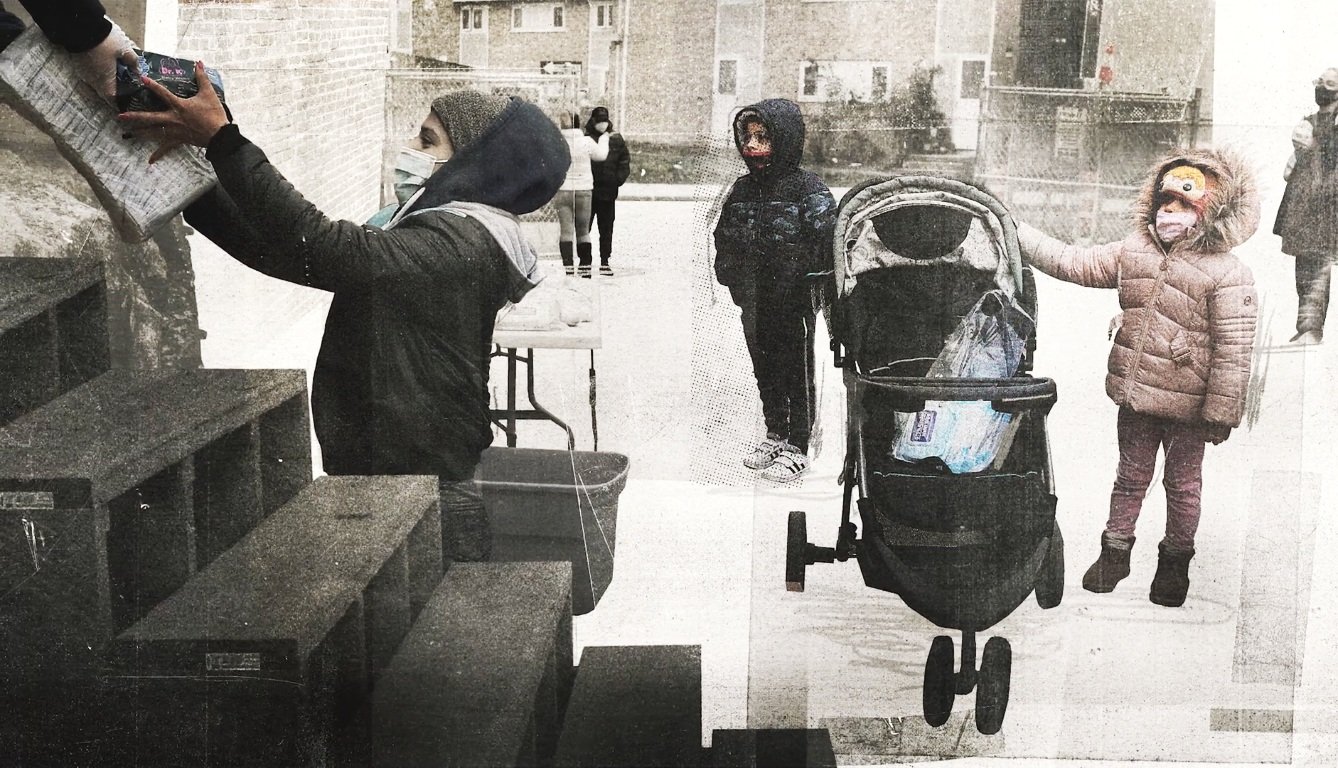
WHAT IS CHELSEA EATS?
Chelsea, Massachusetts, a city of 40,000 people just north of Boston, was among the places in the country hardest hit by Covid-19, both from a health and an economic perspective. Its heavily Latino population is concentrated in sectors of the economy that were shut down when the pandemic hit, and Chelsea residents are also disproportionately likely to be front-line service workers exposed to infection risk. In April 2020, local community organizations and the City of Chelsea responded to the economic crisis facing jobless Chelsea residents by mounting an unprecedented food distribution effort.
In September 2020, after five months of running its food distribution sites, the City decided to redirect its efforts toward distributing financial support so that residents could purchase their own food through a program called Chelsea Eats. By combining city general revenue funds, state aid, and philanthropic contributions, the City assembled enough resources to distribute Chelsea Eats cash cards to approximately 2,000 households — the largest Guaranteed Income project ever attempted — and to replenish the cards on a monthly basis through August 2021. The card amounts varied with household size, with the average household receiving $400 per month. The cards could be spent anywhere Visa is accepted. In total, 3,615 households applied for the cards, and 2,074 were chosen to receive the cash assistance cards via a lottery.
In May 2021, the Harvard Kennedy School released a detailed report documenting how the $2.1 million in funds were spent to date by Chelsea Eats recipients. The vast majority of the funds — 73.3% — were spent at food retailers, with most of that money spent at a local market. The remaining funds were spent primarily on other necessities such as clothing, utilities, transportation, and health care. Overall, Chelsea Eats demonstrated that, when you give people direct cash assistance, they spend the money locally, and they spend it to meet their basic needs.
Read the full report on program spending and results:





